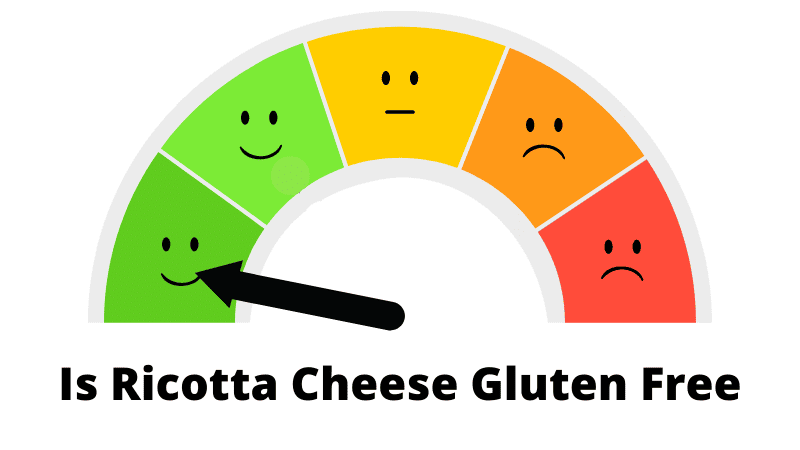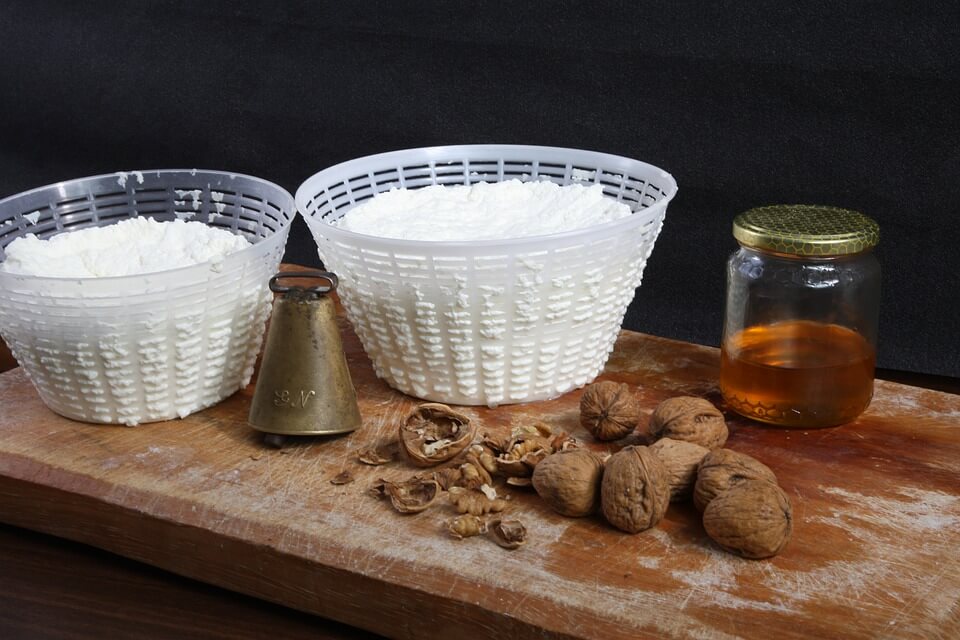Is ricotta cheese gluten free? Cheese in general is gluten free, however some brands add flavoring or seasoning that may contain gluten so you should be careful.
In this article we will talk about what ricotta cheese is, some popular brands of gluten free ricotta cheese and more.
Gluten free confidence score of Ricotta cheese

Ricotta gets a score of 9/10 because it’s made from milk which is gluten free.
However, you need to remember that vinegar may be used to make ricotta cheese.
Besides, stabilizers and thickeners with gluten content may also be present in the cheese. So you have to be careful.
What is Ricotta Cheese

Ricotta cheese is known for its beautiful balance of sweetness and saltiness. It is popularly used in both savory and sweet dishes across the world.
Interestingly, it is made from whey, which is the liquid left behind after other cheeses are made from milk. You can say that it is a cheese made from the byproduct of cheesemaking!
To turn the whey into ricotta, it is first fermented to make it more acidic. After that, it is then exposed to heat.
The combination of acidity and high temperature helps in denaturing the protein, which eventually leads to the formation of fine curd.
Then, the liquid left in it is strained out using a fine cloth. The curd derived from this process is the ricotta cheese.
Ricotta cheese prepared like this comes from the milk of these animals:
- Goat
- Cow
- Sheep
- Water buffalo
There is no gluten content used in the making of ricotta. So, ricotta is a naturally gluten free cheese. However, additional ingredients may change this.
Look out for vinegar content on the label. This is because vinegar is an acidifier used for making ricotta cheese. In that case, you will also need to find out what kind of vinegar has been used.
If it is malt vinegar made with malted barley grains, then it will add gluten to the cheese.
In addition, find out if stabilizers and thickeners are used in the cheese to modify its texture. Sometimes, these additives can contain gluten.
And, naturally, they can make the cheese glutinous. Then there’s always the chance of cross-contamination. So, you need to be careful.
Health benefits of ricotta cheese
| Calcium | Phosphorus |
| Riboflavin | Vitamin B12 |
| Zinc | Vitamin A |
If you’re allergic to gluten, you can trust ricotta cheese in general, unless you’ve picked up some exceptional variant of it.
Besides that, ricotta cheese also has a number of other health benefits. This cheese is loaded with vitamins and minerals, and is a great inclusion in any kind of diet.
In fact, for many people, that’s often the most important reason to have ricotta in the first place.
One serving of this beautiful cheese can help you reach 51% of your daily calcium goal. Besides, it is rich in riboflavin, zinc, phosphorus, vitamin B-12, and vitamin A.
It’s also high on protein. However, unless you’re big on workouts, do remember not to go overboard with it, as it is also quite high in calorie content.
A hundred grams of ricotta contains 174 calories. It has 13 grams of fat, 11 grams of protein, and 3 grams of carbs.
Whole milk ricotta’s calorie and fat content can discourage some people from enjoying this Italian beauty.
But, if you enjoy it responsibly, you will not need to worry about its fattening effects or cardiovascular concerns that might be caused by the high cholesterol content in it.
You can choose fat-free ricotta cheese to reduce this problem. it will also mean reduced sodium